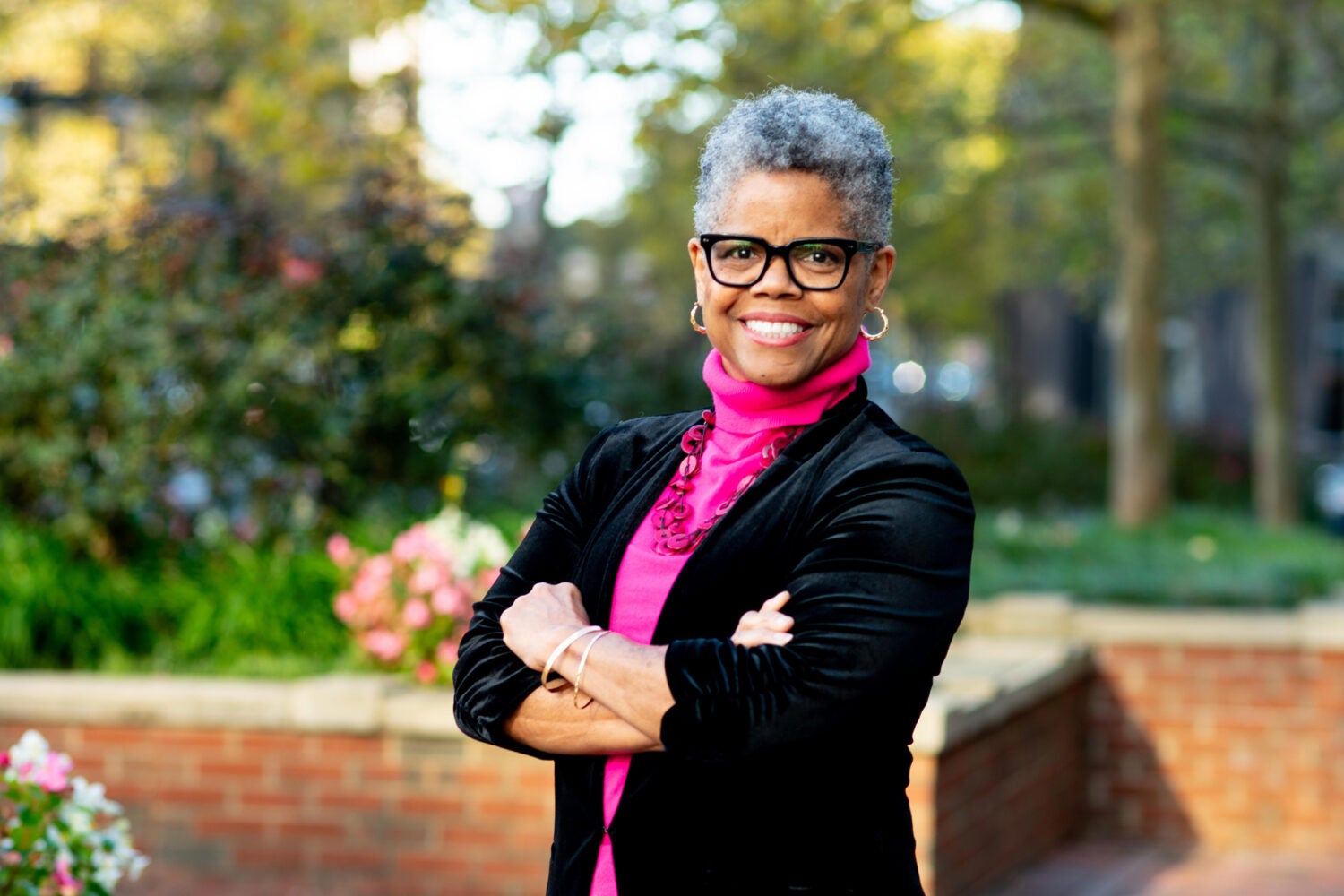When she was a professor at the University of Cincinnati College of Law, Verna Williams ’88 co-founded and co-directed a center focused on issues of race, gender, and social justice. It was only fitting, because those issues have been at the center of her career and life.
Now she is channeling her passion for equal opportunity along with public service into her latest role as CEO of Equal Justice Works, a nonprofit based in Washington, D.C., that partners with law firms to facilitate public interest legal fellowships. It has provided more than 2,500 fellowships since its inception in 1986, with 85% of the participants remaining in public interest law, according to Williams.
Under her leadership, Equal Justice Works is developing a racial justice project which will focus on areas of the law that disproportionately affect communities of color. The organization also focuses on closing gaps in access to justice, particularly in underserved communities and in cases in which people typically lack representation, such as tenants facing eviction proceedings.
“In our access-to-justice conversations, it’s really important to lift up why it matters to society for people to have lawyers,” said Williams. “If we’re in a system where people believe there’s one system of justice that works for people who have money and another one that doesn’t work for people, that’s terribly damaging.”
She said that 92% of civil legal needs are going unmet, due to both a lack of resources in public interest legal organizations, and in some cases, law school graduates’ reluctance to take lower-paying jobs in the face of burdensome school debt. But her career path shows the possibilities. After clerking, her first job as an attorney was with Sidley Austin, where she pursued pro bono opportunities including helping to write an amicus brief on behalf of the NAACP for a Supreme Court case. After a stint at the Department of Justice, she became vice president and director of educational opportunities at the National Women’s Law Center, focusing on gender equity in education. There she successfully argued before the Supreme Court that Title IX requires institutions to address instances of student-to-student sexual harassment.
Williams spent more than 20 years at the University of Cincinnati College of Law, where she taught courses on family law, gender discrimination, and constitutional law and served as dean for five years before starting at Equal Justice Works in September 2022. The departure from her longtime academic home brought her back to the place where she was born and raised and allowed her to be involved in a more hands-on way with issues she has long cared about.
“When I look back on what I’ve been able to do, I’m just stunned.”
Growing up in Washington, D.C., in the ’60s and ’70s during times of protest over civil rights infused her with a zeal for social justice, she said, as did her own experiences as a Black woman encountering discrimination. Also formative was Professor Randall Kennedy’s class at Harvard Law School on racism in American law: “I learned in that class so many pieces of history that I had never been taught. And once I got over feeling really angry about not knowing that stuff, it just made me want to know more.”
While in law school, she forged a connection with a classmate then known as Michelle Robinson, who many years later invited Williams to her home — the White House, when she was first lady Michelle Obama — for conversations to support the writing of her memoir, “Becoming.” Being a guest at the White House at first seemed unreal, said Williams, but she soon eased into the time with her old friend. “It was just wonderful to get to spend that time with her,” she said, “wonderful to be the person who she trusted to share her thoughts with about that experience.”
Like Michelle Obama, Williams would marry an HLS grad from the Class of ’91, David Singleton, who until very recently was the longtime executive director of the Ohio Justice & Policy Center and now is a faculty member at the University of the District of Columbia David A. Clarke School of Law. Their daughter, Allison, was admitted to Harvard Law School as part of the Junior Deferral Program and plans to attend in 2024.
Perhaps that’s not surprising, considering Allison’s exposure to the work her parents have done. But for Williams, who was born in Freedmen’s Hospital (later Howard University Hospital), founded in 1862 to treat formerly enslaved people, her own journey from growing up in a time of segregation and unrest to becoming a Harvard Law graduate and an attorney, academic, and advocate was anything but expected. “When I look back on what I’ve been able to do,” she reflected, “I’m just stunned.”
